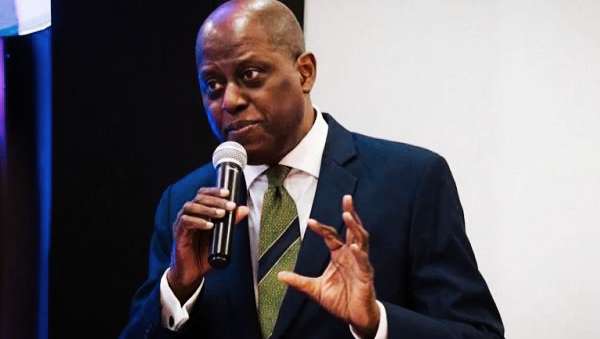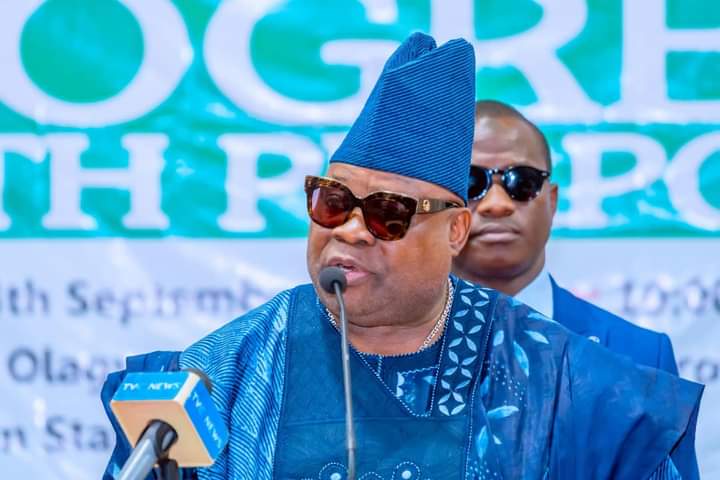– says Dangote Refinery products much cheaper than imported ones
Alhaji Aliko Dangote, president of the Dangote Group, has noted that the visit to his Lagos head office by operatives of the Economic and Financial Crimes Commission (EFCC) in January, was intented to embarrass his company.
Dangote, who is the CEO of Dangote Refinery, also explained that the refinery’s petrol was sold to NNPC at a price lower than what the national oil company imported.
The anti corruption agency had claimed that the visit was part of a probe into alleged preferential allocations of forex to the Dangote Group and 51 other companies under the Emefiele-led Central Bank of Nigeria.
But speaking in an interview with Bloomberg on Tuesday, Dangote stated that the EFCC operatives didn’t talk to anybody during the visit, neither did they arrest anyone, declaring that, “It was just to cause embarrassment.”
Dangote maintained that despite the challenges, their operations remain “100 per cent clean,” given their significant role in Nigeria’s economy.
He also emphasized his company’s reputation as the highest-paying organization in Nigeria, adding that Dangote Group pays more taxes than the banking sector.
The EFCC had earlier written to the 52 companies directing them to provide documents supporting the allocation and utilisation of foreign exchange sold to them at official rates in the last 10 years.
The commission had asked the firms to submit Form A and Form M which detailed the forex allocations to them between 2014 and June 2023.
But while some companies complied with the directive, several others were said to have asked for time to get the proper documents.
However, a Dangote official claimed the firm had honoured the EFCC’s request and wondered why the commission chose to embarrass them.
“We don’t know why they (EFCC officials) came to our office again; we had earlier been invited to the office of the EFCC. As such, the Dangote officials took along all the documents and submitted them. We don’t know why they eventually decided to visit our office again.
“The question we are asking is what did they come to take from our office when we had honoured their invitation? They left with empty hands because all the documents they wanted from us had been taken to them. The same EFCC that came to our office is the one giving information to the media that they are investigating us,’’ the official said.
Before the raid, Dangote Industries had in November 2023 refuted allegations that it was involved in forex malpractices and money laundering involving a staggering $3.4bn allegedly facilitated by Emefiele.
It denied the claims that the money was funnelled to its non-Nigerian subsidiaries, prompting illicit financial flows and round-tripping.
The company referred to past approvals granted by the CBN between 2010 to 2018, allowing it to purchase forex totalling $3.755bn for funding of its projects across Africa, of which only 47.70 per cent was utilised.
Our petrol cheaper than imported alternative
Meanwhile, Dangote who clarified the ongoing fuel pricing concerns, explained that the refinery’s petrol was sold to NNPC at a price lower than what the national oil company imported.
According to him, during the time NNPC bought from them, it also imported about 800,000 metric tonnes of petrol into the country.
He added that the petrol the national oil company imported during the same time they bought from the 650,000 barrels per day refinery was way more expensive than what Dangote sold.
“What’s going on is not really a disagreement per se. NNPC bought from us this particular one on the 15 of September at the international price. They also bought over 800,000 metric tonnes of gasoline imported,” he said.
“The ones they bought from us was actually cheaper than the one they imported. So when they announced our price, it wasn’t really the real price. What they announced was likely what it cost them including profits, and other things. Meanwhile, they’ve never added profit to their cost before.
“And then, the other one is what they imported but the people don’t know how much they spend for importing. But their own importation was about fifteen to 20 percent more expensive than ours. What they first do is to sell at a basket price. If they want to remove subsidy, they can announce that they’ve removed subsidy. Everybody will adjust.”
News continues after this Advertisement
News continues after this Advertisement
.png)
 6 hours ago
14
6 hours ago
14









 English (US) ·
English (US) ·